

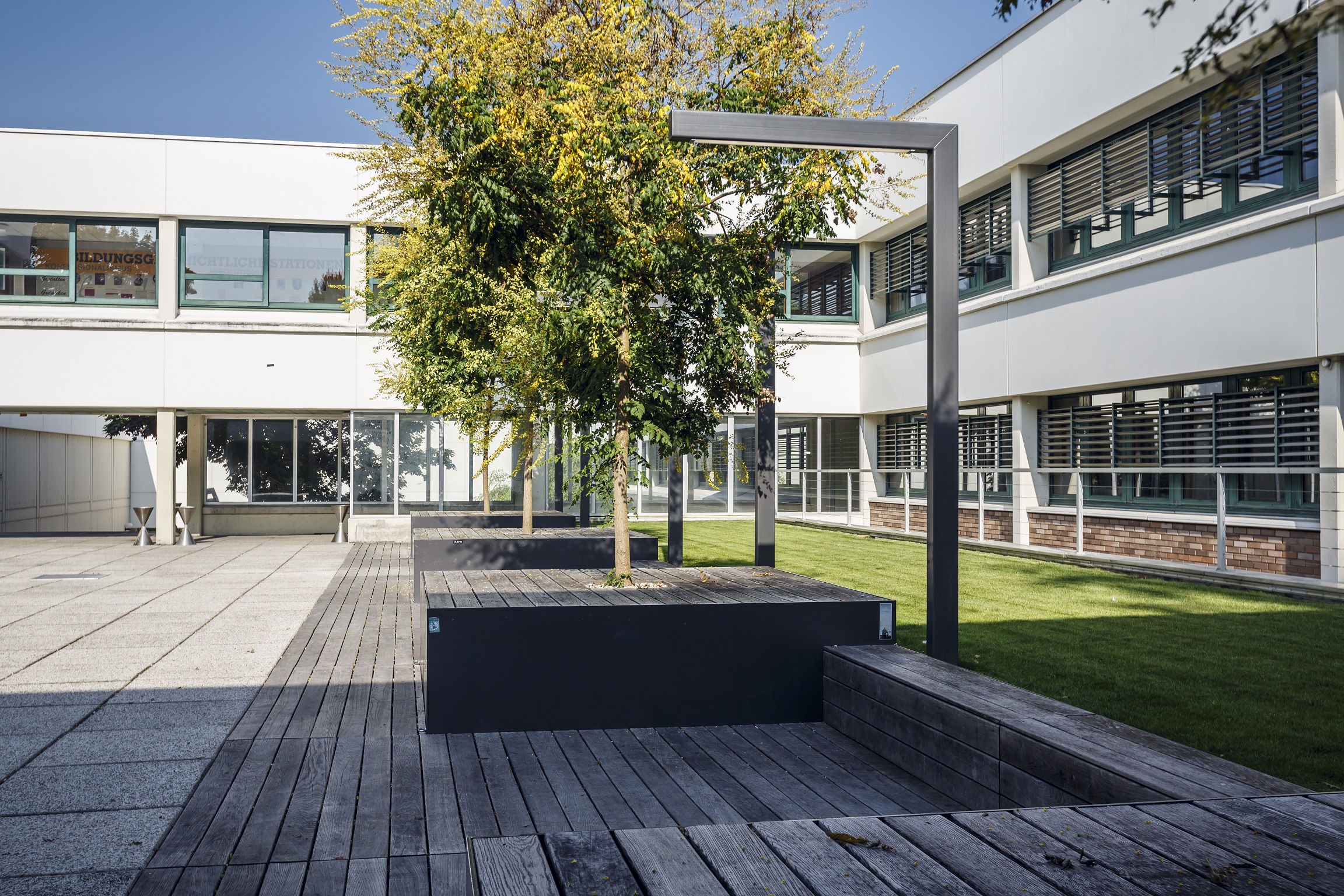
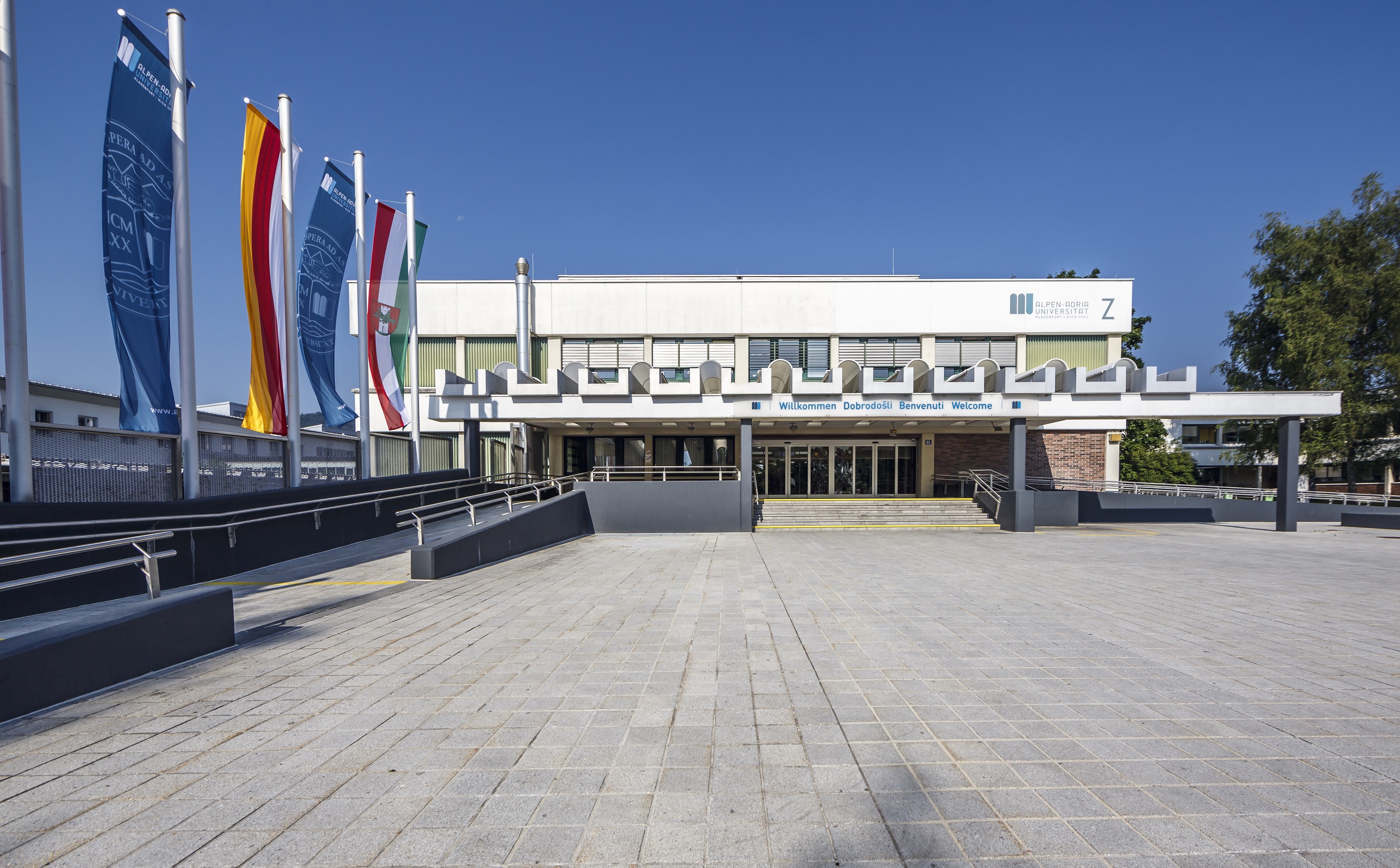
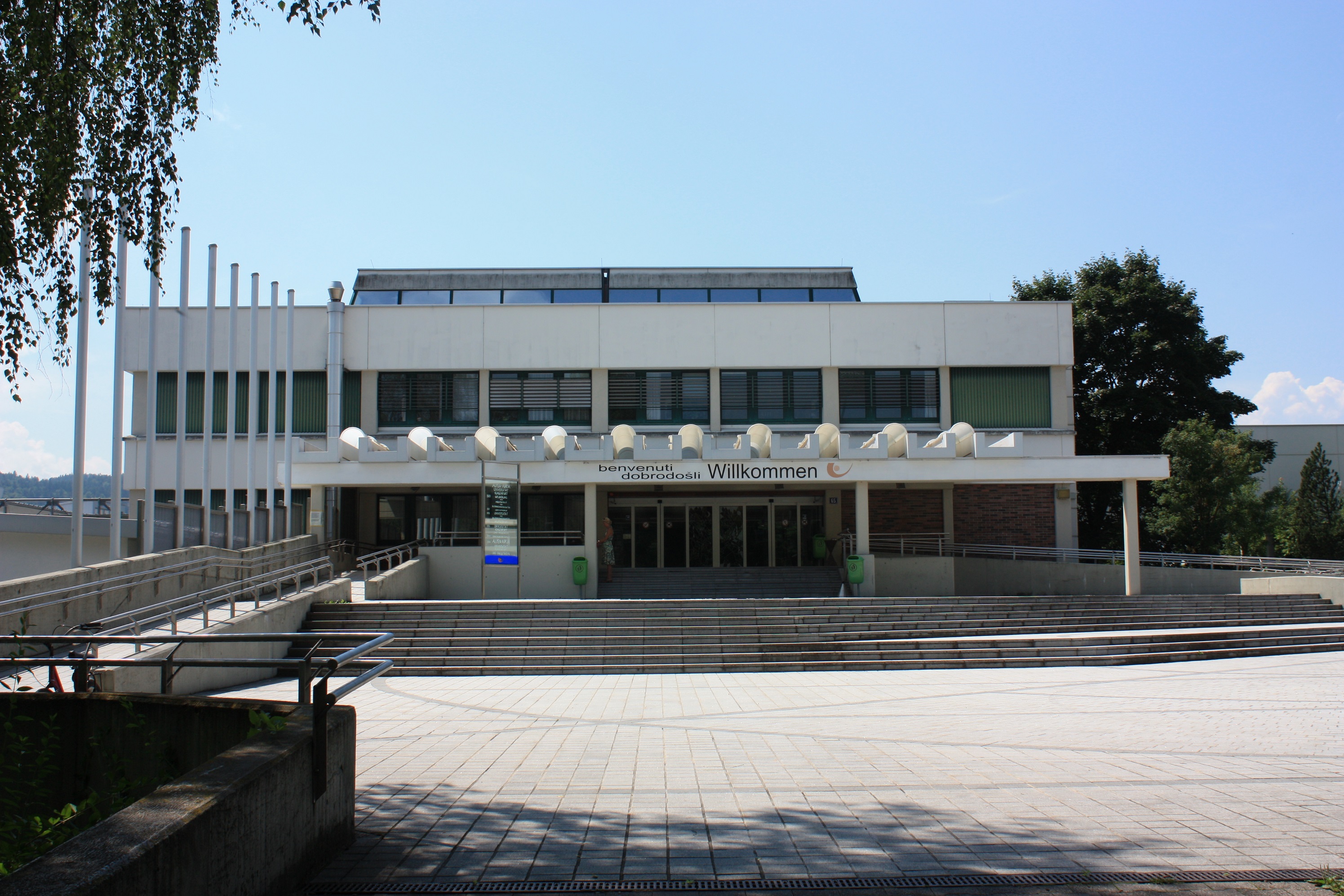
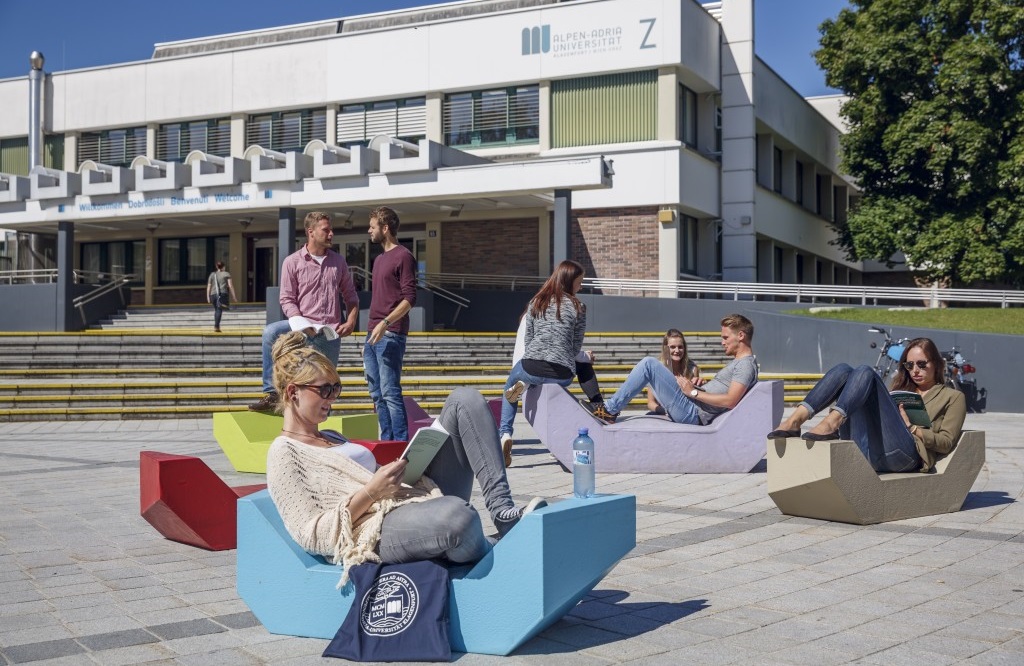
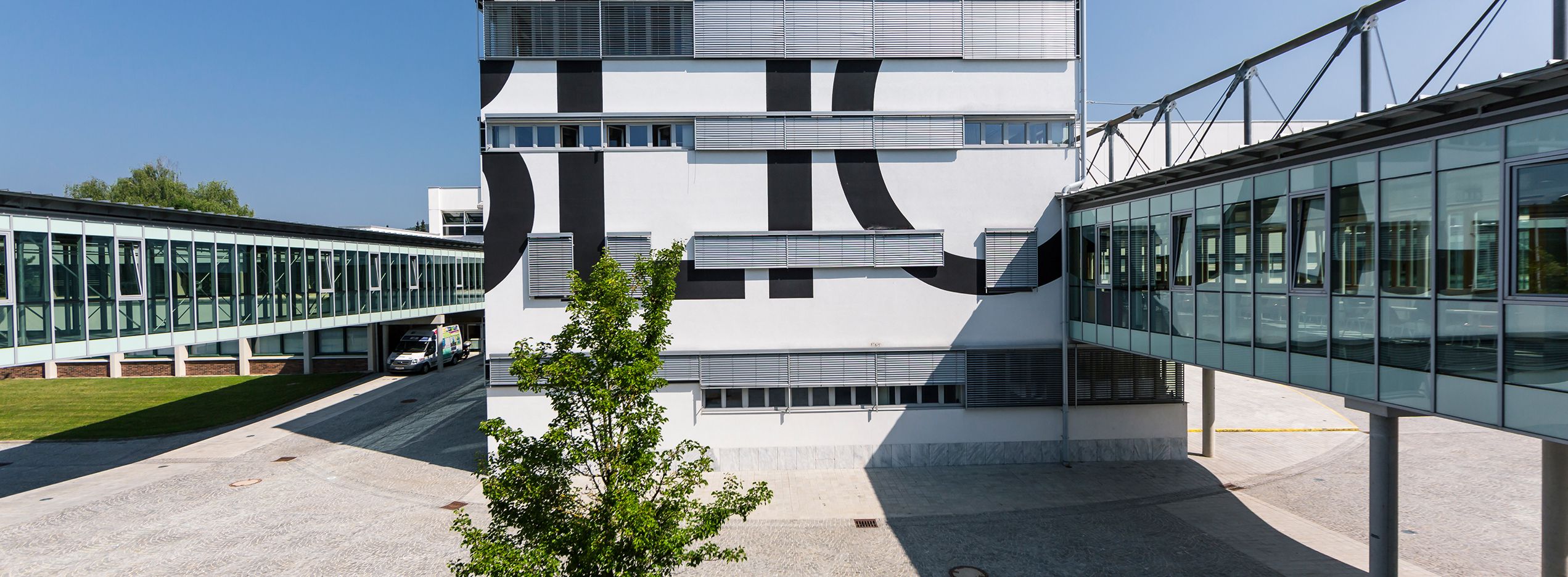
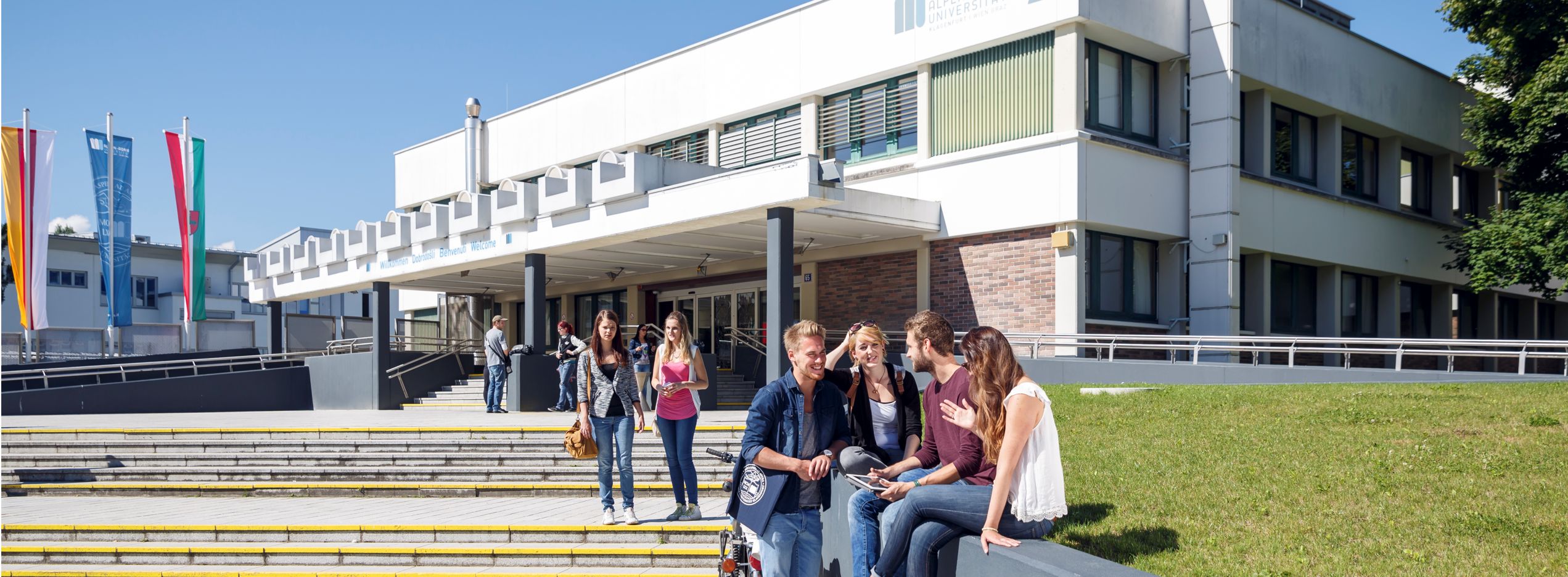
معرفی دانشگاه آلپن آدریا کلاگنفورت
دانشگاه آلپن آدریا کلاگنفورت , دانشگاه کلاگنفورت AAU یکی از دانشگاه های اتریش و بزرگترین موسسه پژوهش و آموزش عالی در استان کرنتن است. که پردیس اصلی آن در کلاگنفورت است.کرنتِن یکی از ایالتهای کشور اتریش است. مرکز آن شهر کلاگنفورت است. اکثریت مردم آن آلمانی زبانند. اقلیتی ۱۴ هزار نفری در این استان به زبان اسلوونیایی صحبت میکنند. همه ساله در ماه جون مسابقات والیبال ساحلی در مرکز این ایالت شهر کلاگنفورت برگزار میشود و هزاران نفر گردشگر به این منطقه سفر می کنند.از دیگر مسابقات معروف جهانی در این منطقه مسابقات مردان آهنی است که شرکت کنندگان می بایستی در مدت زمان ۱۰ ساعت به طور پیوسته در تمام زمینههای شنا، ماراتون، دوچرخه سواری و کوه پیمائی با یکدیگر رقابت کنند. دریاچههای زیبا و کوهستانهای آلپ در این منطقه همه ساله گردشگران فراوانی را جذب می کند. کلاگنفورت مرکز ایالت فدرال کرنتن این کشور است. این شهر با جمعیت بیش از ۹۰٬۰۰۰ نفر، ششمین شهر بزرگ اتریش است. جمعیت کلاگنفورت در آغاز سال ۲۰۰۶ میلادی برابر با ۹۲٬۴۰۴ نفر بوده است. این شهر در نزدیکی دریاچه وورترزی و رود گلان واقع شده است و نیز فاصله نزدیکی با کشور اسلوونی و ایتالیا دارد. چندین کوه پوشیده از جنگل با بلندای بیش از ۱٫۰۰۰ متر شهر را در برگرفتهاند.کلاگنفورت به ۱۵ بخش تقسیم شده است. در سال ۱۸۰۹، سربازان فرانسوی زیر فرمان ناپلئون، دیوارهای شهر را ویران کردند، که امروزه فقط کمی از آن باقیمانده است. در ۱۸۶۳، خط راهآهن این شهر را به سانکت فایت آندر گلان مرتبط ساخت و باعث ارتقای اقتصاد شهر شد.
در اواخر قرن دوازدهم، برای اولین بار نام این شهر در تاریخ ذکر شد. در قرنهای بعد، کلاگنفورت متحمل آتشسوزیها، زمین لرزهها، هجوم ملخها و حملات ترکهای عثمانی و ویرانیهایی در جنگهای قبایل شد. در قرن نوزدهم، این شهر به یک مرکز مهم فرهنگی درکارینتیای اسلوانی (Carinthian Slovene) تبدیل شد. در سال 1919، توسط ارتش پادشاهی صربستان، کرواسی و اسلوونی اشغال شد. در سال 1920، نیروهای اشغالگر از مرکز شهر عقب نشینی کردند و مردم شهر به باقیماندن در کشور اتریش رای دادند. در طی جنگ جهانی دوم، این شهر 41 بار بمباران شد و پس از جنگ مردم برای بازسازی شهر خود مجبور به خارج کردن 110,000 مترمکعب خاک و بقایای ساختمانها از داخل شهر شدند.کلاگنفورت در سال 1961 اولین شهر در اتریش بود که دارای مناطق خاص پیادهروی و بدون ماشین شد. در سال 1968 این شهر لقب شهر سال اروپا (European City of the Year) را کسب کرد و تاکنون سه بار موفق به دریافت جایزه فرهنگی اروپا نوسترا (Europa Nostra Diploma of Merit)، برای حفظ شهرهای تاریخی شده که در میان سایر شهرهای اروپای خود یک رکورد محسوب میشود. در سال 2007، نام رسمی شهر به کلاگنفورت ام وورترسی (Klagenfurt am Worthersee) تغییر یافت و از آنجایی که هیچ اقامتگاه دیگری با نام کلاگنفورت در هیچ جای دیگر وجود نداشت، نام کوتاه کلاگنفورت به این شهر اطلاق شد. کلاگنفورت دارای آب و هوای قارهای است و در سرتاسر پاییز و زمستان هوای آن مهآلود میباشد. این شهر زمستانهای نسبتاً سردی دارد؛ هرچند که این سرما گاهی اوقات با آب و هوای گرمتر و بادهای گرم و خشک فوهن (Foehn Wind) تعدیل میشود که از جانب کوههای کاراوانکن (Karawanken) میوزد. این باد، نوعی باد خشک است که به سمت دامنه کوه میوزد و باعث آبشدن سریع برفها، خشکی و ایجاد شرایط مناسب برای آتشسوزی میشود.
در این شهر، چندین دانشگاه وجود دارد که مهمترین آنها، دانشگاه آلپن آدریا (Alpen-Adria-Universität Klagenfurt) است. این دانشگاه در سال 1960 کار خود را تحت عنوان کالج علوم تربیتی (College of Educational Studies) شروع کرد و در سال 1993 نام آن به دانشگاه کلاگنفورت (University of Klagenfurt) تغییر کرد. نام این دانشگاه در اکتبر سال 2004 برای تاکید بر ارتباط فرهنگی بین مناطق آلپ و دریای آدریاتیک به نام فعلی تغییر یافت. این دانشگاه در حدود 10.000دانشآموز و 800کارمند دارد و دانشکدههای آن شامل: علوم اجتماعی، مدیریت و اقتصاد، تکنولوژی و همینطور مطالعات میانرشتهای (Interdisciplinary Studies) است.دانشکده مطالعات میان رشته ای (IFF) نیز در این دانشگاه وجود دارد. رئیس IFF، ورنا وینی واتر، اتریش انتخاب شد. علاوه بر گروه ها و واحد های چهار دانشکده، دانشگاه همچنین میزبان تعدادی از امکانات مرکزی مانند موسسه موسیل رابرت وسازمان جایزه باخمان و مرکز دانشگاه فرهنگی (UNIKUM) است. تلاش برای تاسیس دانشگاه در سال 1964 آغاز شد ودر سال 1970 موفق شد. Kärntner Universitätsbund، به منظور ترویج و توسعه دانشگاه ها در اتریش، در سال 1964 تاسیس شد. اولین مدرک دکترا در سال 1972 ارائه شد. در طول دوره 1973-1978 ، آموزش گواهی ها و برنامه های مدرک دکترا تاسیس شد.. در سال 1975 قوانین جدید در این سازمان آموزش عالی به اجرا در آمد.موسسه تحقیقات دانشگاه برای آموزش تکنولوژی، مهارت های رسانه ها و آموزش مهندسی در سال 1978 تاسیس شد. اما ده سال بعد تعطیل شد. در سال 1979 موسسه تحقیقات دانشگاه برای مطالعات راه دور، تاسیس شد که دانشگاه برای تحقیقات میان رشته ای و آموزش مداوم در سال 1991 تغییر نام داد – و خرس IFF. نام گفت. رشته های تحصیلی ” مدیریت بازرگانی” و “انفورماتیک کاربردی” ازسال 1983 به بعد شروع شد. در سال 1993، نام دانشگاه به دانشگاه کلاگفورت تغییر یافت، و در همان زمان، دانشکده علوم انسانی و دانشکده اقتصاد، مدیریت بازرگانی و انفورماتیک افتتاح شد.دانشکده چهارم، علوم فنی دانشگاه در ژانویه 2007با تمرکز بر حوزه های کلیدی انفورماتیک کاربردی با همکاری واستفاده ازپارک علم و فن اضافه شد.
تحصیل در این دانشگاه نه تنها لذت حضور در منطقه دارد بلکه بسیار حائز اهمیت است در سطح جهانی به دلیل نوع تدریس و تحقیق. دانشگاه بصورت بین المللی از طریق ملاقات با پروفسورهای سایر کشورها و خصوصا داشتن دانشجو از سرتاسر دنیا بصورت آکادمیک و علمی عمل می کند.از نشانه های این دانشگاه تحقیقات و تدریس با کیفیت بالا و مشارکت ویژه و حمایت از تحقیقات می باشد.کوه های اطراف ،دریاچه و جنگلها همگی باعث می شوند تا شما از یکی از زیباترین مناطق اروپا لذت ببرید.
دانشگاه آلپن آدریا کلاگنفورت دریک نگاه
|
شعار : Through hardships to the stars نوع دانشگاه : عمومی سال تاسیس : 1970 / 1975 / 1993 بودجه : 55 میلیون یورو مکان : Klagenfurt, Austria وبسایت : www.aau.at |
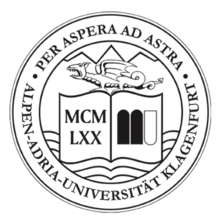 |
|
تعداد اعضای هیات علمی : 1,029 تعداد دانشجویان : 11,556 تعداد دانشجویان دکترا : 899 |
رنگ : Shades of Blue |
رتبه بندی
| نظام رتبه بندی | رتبه |
| QS | 751-800 |
دانشکده ها
| دانشکده | دپارتمان ها |
| دانشکده علوم انسانی | گروه مطالعات انگلیسی و آمریکایی گروه تحلیلی فرهنگی گروه علوم و تحقیقات آموزشی گروه مطالعات آلمان گروه تاریخ گروه علوم و رسانه های ارتباطی گروه فلسفه گروه روانشناسی گروه مطالعات عاشقانه گروه مطالعات اسلاوی موسسه Musil رابرت مطالعات ادبی مرکز دانشکده برای زبان اشاره و اشکال در ارتباط برای مشکل شنوایی |
| دانشکده مدیریت و اقتصاد | گروه مدیریت بازرگانی گروه اقتصاد گروه مدیریت مالی گروه مدیریت نوآوری و کارآفرینی گروه مدیریت تولید، انرژی زیست محیطی گروه مدیریت عمومی، غیرانتفاعی سلامت گروه جامعه شناسی گروه جغرافیا و مطالعات منطقه ای گروه حقوق |
| دانشکده علوم فنی و مهندسی | گروه انفورماتیک کاربردی گروه آموزش انفورماتیک گروه سیستم های اطلاعاتی گروه فناوری اطلاعات گروه ریاضیات گروه آموزش ریاضی گروه سیستم های شبکه و جاسازی شده گروه فن آوری های سیستم های هوشمند گروه آمار |
| دانشکده مطالعات بین رشته ای |
گروه توسعه آموزش و مدرسه مرکز دانشکده تحقیقات و آموزش صلح |
مدارک موردنیاز جهت اخذ پذیرش
1. مدرک و ریزنمرات مقطع پیشین
2.رزومه
3.دانش قابل قبولی از زبانی که برنامه تحصیلی موردنظرتان به آن زبان ارائه میشود.
4.توصیه نامه
5.انگیزه نامه
ددلاین
| ترم | ددلاین |
| زمستان | 11 جولای تا 5 سپتامبر |
| تابستان | 9 ژانویه تا 5 فوریه |
مشاهیر دانشگاه آلپن آدریا کلاگنفورت
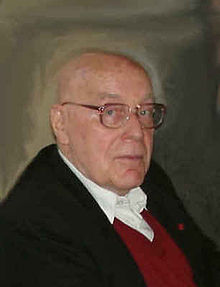 |
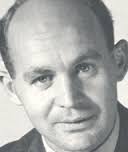 |
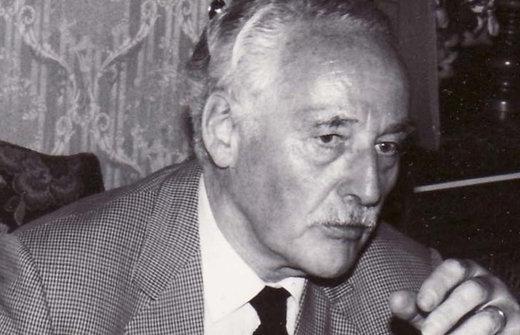 |
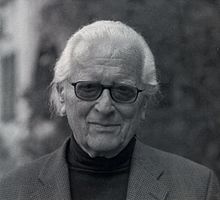 |
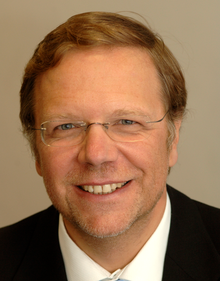 |
|
Hans Albert (born February 8, 1921) is a German philosopher. Born in Cologne, he lives in Heidelberg.His fields of research are Social Sciences and General Studies of Methods. He is a critical rationalist, paying special attention to rational heuristics. He is a strong critic of the continental hermeneutic tradition coming from Heidegger and Gadamer. |
Joseph Buttinger was an Austrian politician and, after his immigration to the United States, an expert on East Asia.Buttinger was born into a working-class family and left school at age 13 to help support his family. He became a youth movement leader in Austria and, by the age of 24, was secretary of the Social Democratic Party. After being imprisoned for several months in 1934, he became chairman of the Socialist underground and a leader of the anti-Fascist movement. |
Adolf Frisé (29 May 1910 in Euskirchen, North Rhine-Westphalia − 2 May 2003 in Frankfurt am Main) was a German journalist, author and editor. He is best known as the editor of the literary works of the Austrian philosophical writer Robert Musil.Frisé grew up in Viersen in the Lower Rhine region where he attended the Erasmus von Rotterdam Gymnasium. The German writer and historian of culture Gustav René Hocke was a friend and fellow student there. After completing his secondary education, he went on to study at Munich, Berlin and Heidelberg | Ernst von Glasersfeld (March 8, 1917 in Munich – November 12, 2010 in Leverett, Franklin County, Massachusetts) was a philosopher, and Emeritus Professor of Psychology at the University of Georgia, Research Associate at the Scientific Reasoning Research Institute, and Adjunct Professor in the Department of Psychology at the University of Massachusetts Amherst. He was a member of the Board of Trustees, American Society of Cybernetics, from which he received the McCulloch Memorial Award in 1991. He was a member of the Scientific Board, Instituto Piaget, Lisbon. | Georg Gottlob FRS is an Austrian computer scientist who works in the areas of database theory, logic, and artificial intelligence and is Professor of Informatics at the University of Oxford.Gottlob obtained his undergraduate and PhD degrees in computer science at Vienna University of Technology in 1981.Gottlob is currently a chaired professor of computing science at the Oxford University Department of Computer Science, where he helped establish the information systems research group. He is also a Fellow of St John's College, Oxford. |
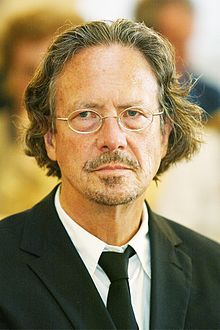 |
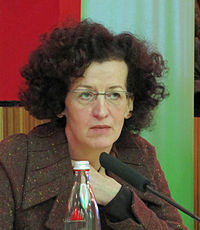 |
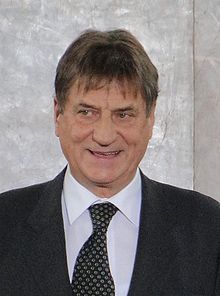 |
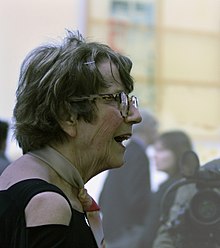 |
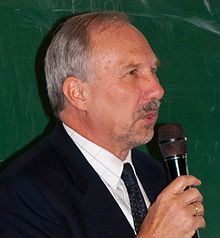 |
| Peter Handke is an Austrian novelist, playwright and translator. His writings about the Yugoslav Wars and subsequent NATO bombing of Yugoslavia with criticism of the Western position and his speech at the funeral of Slobodan Milošević have caused controversy, and he has been widely described as an apologist for far-right Serbian nationalism. He has been awarded the Georg Büchner Prize, the Franz Kafka Prize and the International Ibsen Award; the latter award was extremely controversial and Handke was met by protesters in Oslo. | Maja Haderlap is a bi-lingual Slovenian-German Austrian writer, best known for her award-winning novel Angel of Forgetting, highlighting the Austria's only militarily organized resistance against National Socialism - the Carinthian minority of Carinthian Slovenes as one of the non-Jewish Holocaust's victims.She studied German language and literature at University of Vienna and has PhD in Theatre Studies.After her graduation she worked as assistant dramaturg, as a program editor and a lecturer at the Alpen-Adria-Universität in Klagenfurt. | Magris graduated from the University of Turin, where he studied German studies, and has been a professor of modern German literature at the University of Trieste since 1978.He is an essayist and columnist for the Italian newspaper Corriere della Sera and for other European journals and newspapers.His numerous studies have helped to promote an awareness in Italy of Central European culture and of the literature of the Habsburg myth.Magris is a member of several European academies and served as senator in the Italian Senate from 1994 to 1996. | Maria Lassnig was an Austrian artist known for her painted self-portraits and her theory of "body awareness".She was the first female artist to win the Grand Austrian State Prize in 1988 and was awarded the Austrian Decoration for Science and Art in 2005.Lassnig lived and taught in Vienna from 1980 until her death.Maria Lassnig was born in Kappel am Krappfeld, Austria on 8 September 1919.Her mother gave birth to her out of wedlock and later married a much older man, but their relationship was troubled and Lassnig was raised mostly by her grandmother | Ewald Nowotny is an Austrian economist and social democratic politician and currently president (governor) of the National Bank of Austria and member of the European Central Bank (ECB)’s governing council.He graduated with a doctorate from the University of Vienna in 1966, took his habilitation at the Johannes Kepler University Linz in 1972 and has been a full professor at the Vienna University of Economics and Business Administration since 1982.Since 1974, he has held various functions in the Austrian Social Democratic Party.He was a member of the Nationalrat, the more important chamber of the Austrian parliament, from 1978 to 1999. |